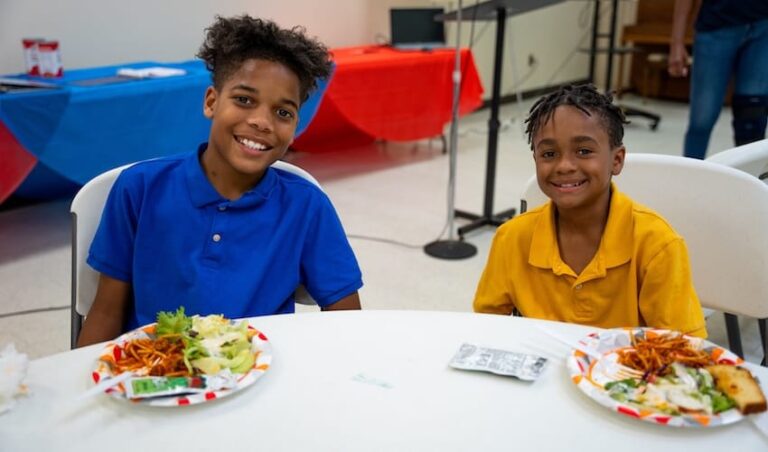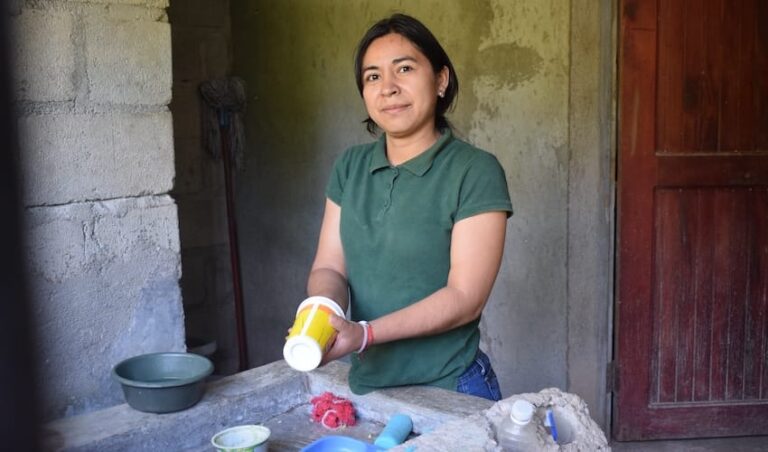
Summer Slide and Food Insecurity
Most of us imagine summer break as a time of play and relaxation for kids. The phrase “summer slide” sounds like it belongs in that picture – like a slide at a playground or water park, it should be something fun, right?
But there’s nothing fun about this slide. Also called “summer learning loss,” summer slide refers to a decline in math, science and writing skills that often happens when kids are out of the classroom for months on end.
Summer slide can happen to all children, across all grade levels. To some degree, this backslide is inevitable – no child wants to spend their vacation doing homework, after all. But summer slide disproportionately affects children who are also dealing with food insecurity and don’t know when they’ll get their next meal. Here’s why:
1. Summer food costs can overwhelm a family’s entire budget, leaving nothing for education or enrichment.
When school lets out for summer vacation, food-insecure households with children are hit with a financial double-whammy, namely:
Kids often rely on a free or reduced-price school meal program as a main source of nutrition. When the school year ends, so do these meals – and families are left to pick up the cost.
Families must also contend with the need for extra childcare to cover the hours when kids are home during the day.
For families with plenty of food, the first is a nonissue. And for many, the solution to the second is simple: sign the kids up for day camp or daycare, sports lessons and other activities. One parent may even be able to cut their hours or work from home while watching the kids.
But for a family who struggled to afford enough food during the school year, the end of school meals creates a much greater problem. Working parents cannot afford to cut their hours if they want to cover food costs – but at the same time, they must cut their hours to take advantage of the cheapest childcare option (themselves). This dilemma leaves struggling parents stretched to the breaking point. Something will have to be sacrificed.
In a time of crisis, parents may choose to skip making car payments, miss an electric bill or even miss making rent. Spending on food can be reduced, but not eliminated. A tenuous financial situation like this often means that children living with food insecurity lack access to activities that can reduce the impact of summer slide – activities like day camps and summer learning programs that feature math, science or other classroom skills but tend to be cost-prohibitive.
2. Food insecurity impacts a child’s ability to learn.
Studies by education researchers have shown that children who lack access to regular, nutritious foods do not perform as well in school compared to students for whom hunger is never an issue. This creates a year-round problem for hungry kids and can have a long-term impact on their development.
By the time summer rolls around, kids who live with food insecurity have already seen their education compromised. From there, their summer slide becomes steeper, and it can be even more difficult for them to pick up where they left off when school starts back in the fall.
3. Hunger can lead to mental health issues in addition to physical complications.
Not having access to proper nutrition has a physical impact on a child’s ability to learn and develop, but the mental toll hunger takes can be just as damaging. Children who face food insecurity show higher levels of anxiety and less developed social skills compared to their peers. Because food insecurity can become even worse in the summer, kids’ mental health can too. This spiral can increase how far “down” summer slide takes them.
All children deserve access to an education free from the roadblocks of food insecurity. Although it may not be possible to completely prevent summer slide, we can slow it down for the kids who need help the most. Making sure kids have access to the food they need not only reduces the mental and physical costs of hunger but can help ease the burden on struggling parents and improve the overall lives of families year-round.






